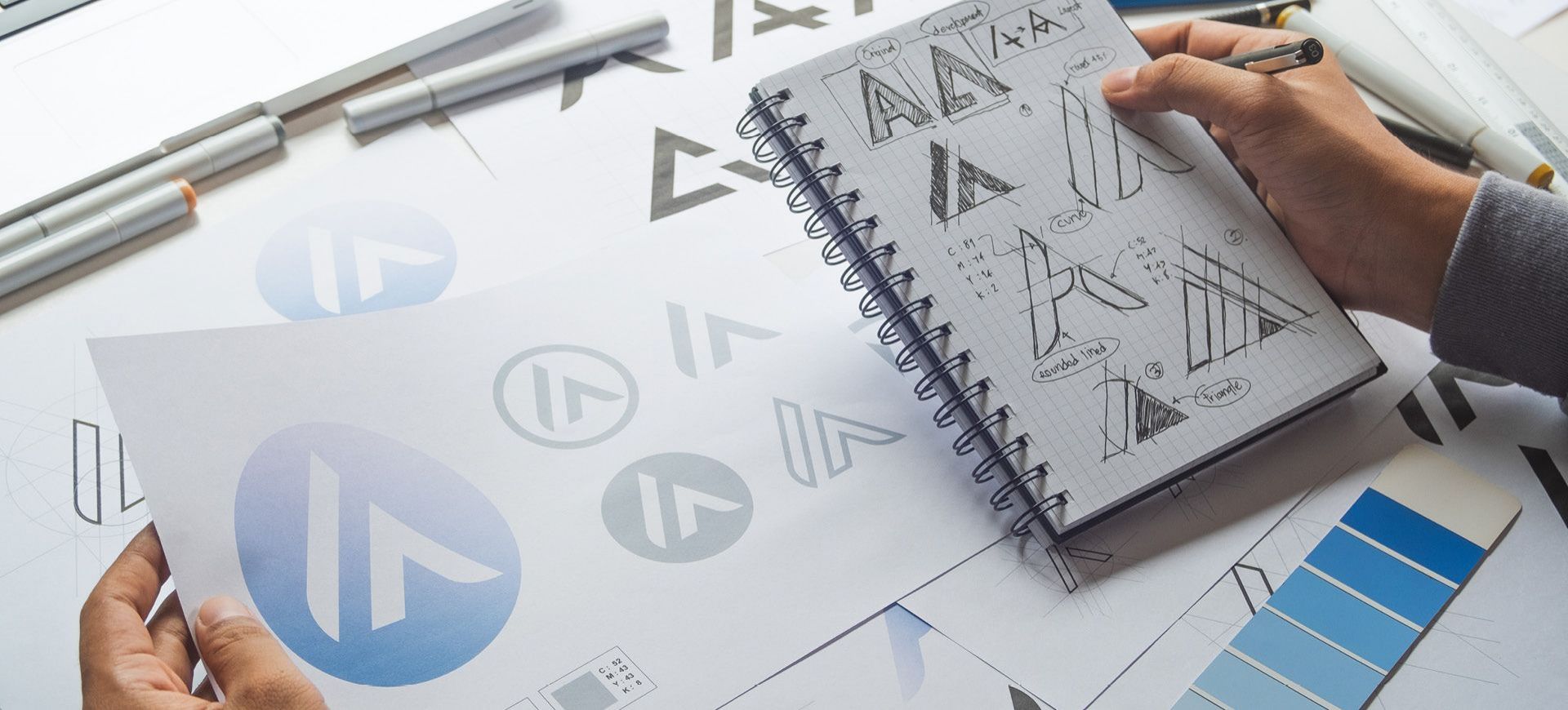16th Aug 2018

16th Aug 2018
The crucial questions
Any good logo designer will want to get information from you about your business before working on your brand. Questions about your business, what you do, how you do it, why you do it and what makes it unique will all be crucial. There is brand value in making people smile too so when you're starting a brief for the logo design it's worth considering what feelings you're trying to generate with your logo.
Start in black and white
It's often easier to assess the impact of a logo design by starting with a black and white version first. That way you can focus on the actual idea behind the logo and ensure that it's sound. Colour can be a big distraction - and a huge improvement - but the logo will be of more use if it stands up on its own before applying colour.
Simplicity will be easy to remember
The simpler the logo, the more your audience is going to be likely to find it easy to remember. Memorable logos tend to be the most successful because they are always instantly recognisable. Aim for a simple, pared back logo that tells the key story of the brand in a glance.
A representative logo
Typeface, size, arrangement, use of symbols and acronyms could all be factors in your logo design. Each one needs to be carefully considered in terms of whether it is appropriate for the brand it represents and the audience it's trying to reach. In particular, look out for any potentially negative associations, such as acronyms that spell swearwords.
Mark the differences
Your logo needs to stand out among competitors and it's often the small details that can do this. If your competitors are all using symbols, bright colours or a specific font, steer clear of any similarities and create something that is completely unique instead.
Logos don't have to be literal
Some logos do work as a literal representation of a name or activity (e.g. Shell oil) but you don't necessarily have to work on that level. Meaning is often added afterwards and associations between your logo and business activities can easily be formed later on, no matter how separate the two may initially seem.
Symbols aren't everything
Your logo may work just as well as a simple word or couple of words; you don't have to spend hours agonising over an image to go with them.
Test the logo in context
A good logo designer will give you examples of your potential new logo in situations where customers are likely to see it. That could be on packaging or posters or even on social media. The more context you see, the stronger the sense you'll get of whether the logo is likely to work.
If you'd like to find out more about creating the perfect logo, see our branding page or get in touch with Storm12 today.